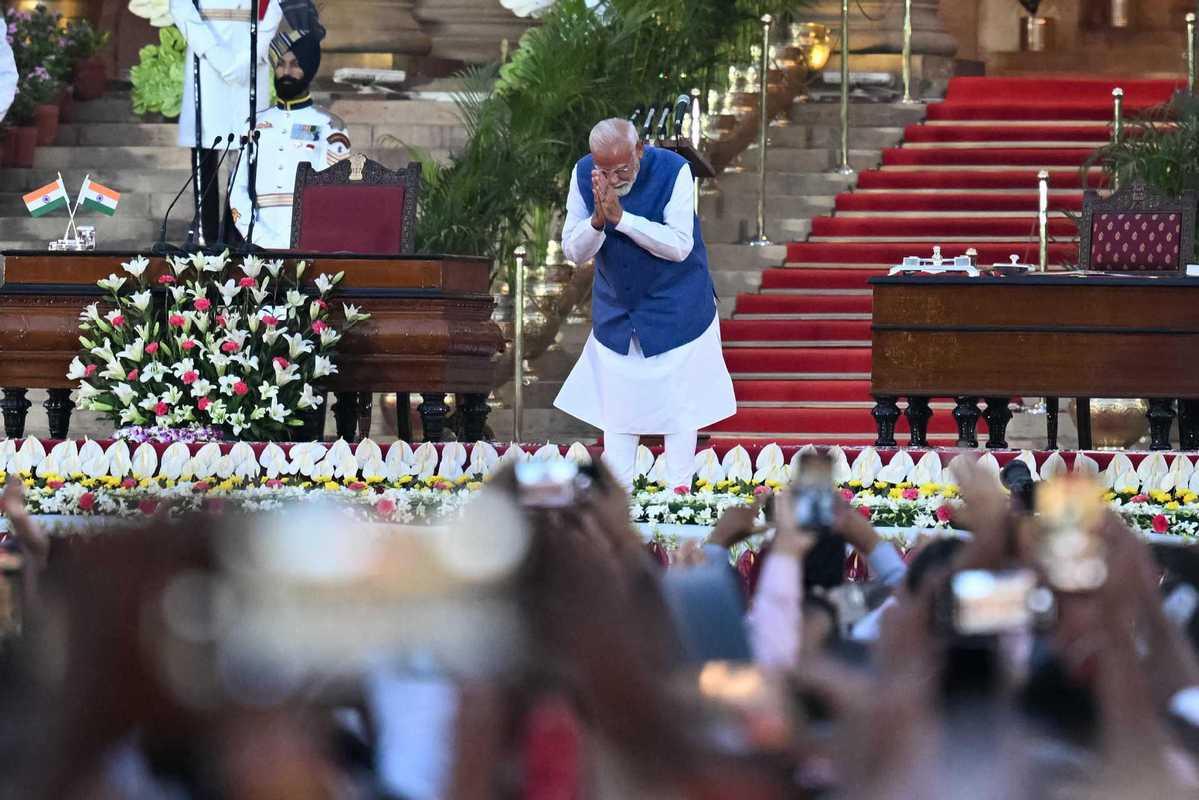
India's Bharatiya Janata Party (BJP) leader, Narendra Modi gestures to the gathering as he arrives to take the oath of office for his third term as prime minister during the oath-taking ceremony at presidential palace Rashtrapati Bhavan in New Delhi on June 9, 2024. [Photo/Aencies]
Given it is the US administration's consistent policy to push India to act as a "counterbalance" to China in the region, Prime Minister Narendra Modi's win in India's general election, which guarantees him a record third straight term, offers a good chance for Washington and its allies to strengthen their anti-China alliance in the strategic "Indo-Pacific" region.
The deepening defense relationship between the US and India was at the top of US President Joe Biden's agenda when he congratulated Modi on the election results. In a call, the two leaders emphasized "deepening the US-India comprehensive and global strategic partnership" and "advancing their shared vision of a free, open and prosperous Indo-Pacific region", the White House said. US National Security Advisor Jake Sullivan is also due to visit New Delhi soon "to engage the new government on shared US-India priorities".
Indeed, having formed the Quad security dialogue that also includes Japan and Australia, the US and India have in recent years bolstered their defense and security partnership through information sharing and technology transfer, with the two countries regularly participating in joint military exercises obviously messaging China.
The 2020 China-India standoff along their disputed border seems to have pushed India-US military collaboration to a new high, with the two sides agreeing in 2023 to jointly develop and produce defense equipment to "strengthen the shared security" of the two countries.
US Defense Secretary Lloyd Austin said at the Shangri-La defense conference, held recently in Singapore, that "the relationship that we enjoy with India right now is as good or better than our relationship has ever been".
Despite this, it would be unrealistic and even naive to think that India will play the role of a willing pawn in the US-orchestrated geopolitical game against China. The country has always been cautious about not being drawn into any direct confrontation with China.
Just days prior to voting starting in the general election, Modi, in an interview, emphasized the importance of India's relations with China. He said the two countries should urgently address the "prolonged situation" on their border. "I hope and believe that through positive and constructive bilateral engagement at the diplomatic and military levels, we will be able to restore and sustain peace and tranquility at our borders."
A sound and stable China-India relationship serves the common interests of both sides and is conducive to peace and development of the region and the world at large. So long as the two countries proceed from their fundamental interests and those of their people, and bear in mind the overall situation, they will be able to maintain the development of their relations on a healthy and stable track. The US is daydreaming if it wants to use the differences that exist between the two countries to pit India against China.













